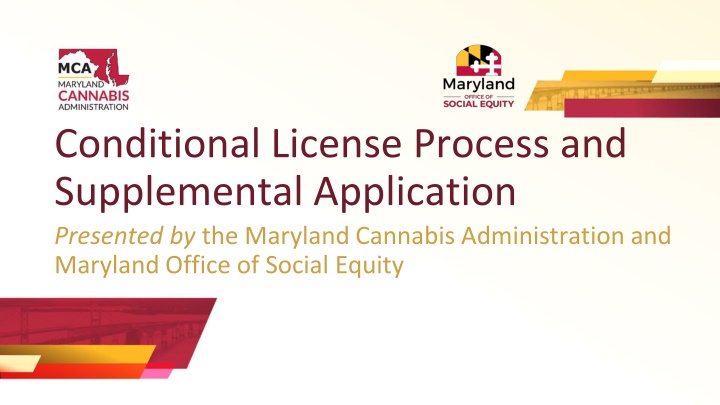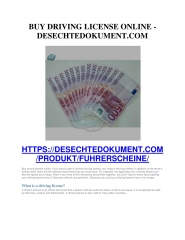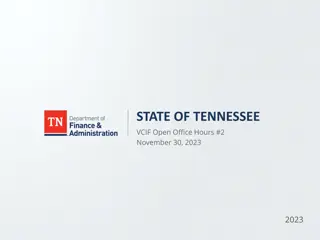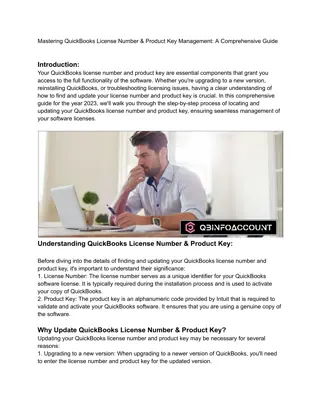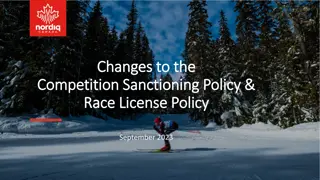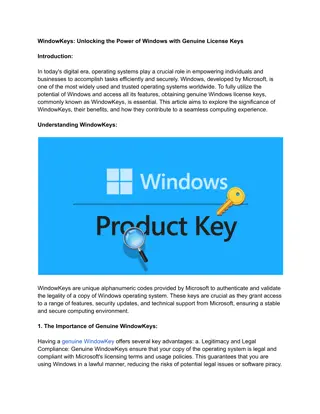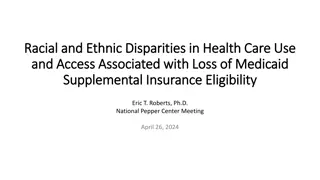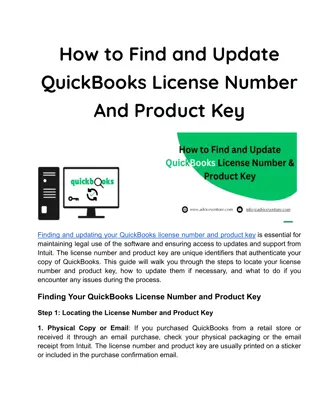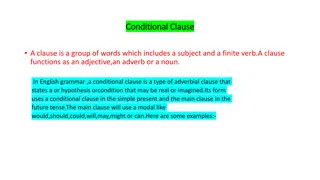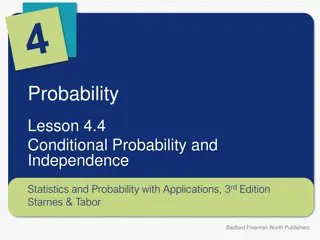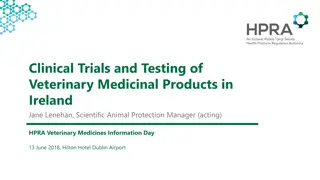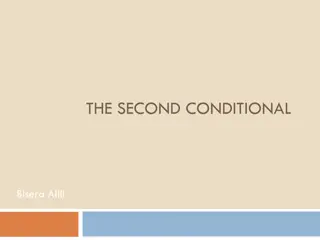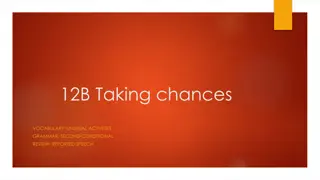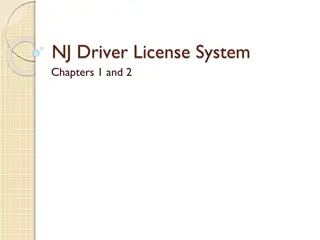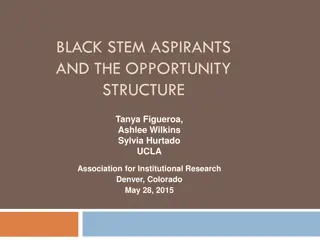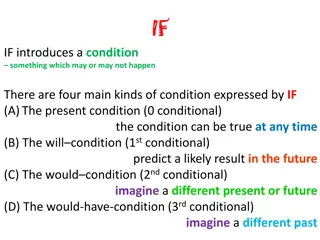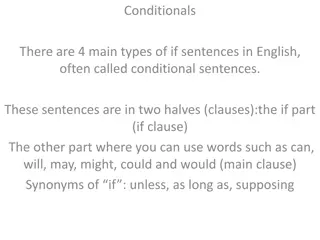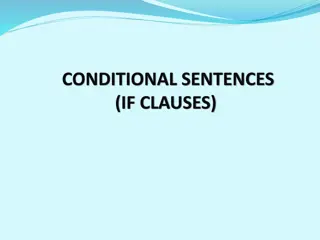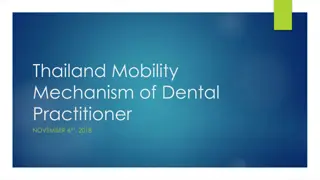Maryland Conditional License Process and Supplemental Application
Presented by the Maryland Cannabis Administration and Maryland Office of Social Equity, this document covers the process for obtaining a conditional license and completing the supplemental application. It includes information on staff, access to assistance, technical grants available, eligibility criteria, and submission requirements for grant funds. Additionally, it outlines the resources and support services offered to social equity conditional licensees, helping them succeed in the cannabis industry.
Download Presentation

Please find below an Image/Link to download the presentation.
The content on the website is provided AS IS for your information and personal use only. It may not be sold, licensed, or shared on other websites without obtaining consent from the author.If you encounter any issues during the download, it is possible that the publisher has removed the file from their server.
You are allowed to download the files provided on this website for personal or commercial use, subject to the condition that they are used lawfully. All files are the property of their respective owners.
The content on the website is provided AS IS for your information and personal use only. It may not be sold, licensed, or shared on other websites without obtaining consent from the author.
E N D
Presentation Transcript
Conditional License Process and Supplemental Application Presented by the Maryland Cannabis Administration and Maryland Office of Social Equity
MCA and OSE Staff on Webinar Maryland Cannabis Administration (MCA) Maryland Office of Social Equity (OSE) Will Tilburg, Director Audrey Johnson, Executive Director Anthony Grover, Chief, Office of Compliance and Regulation (OCR) Courtney Davis, Deputy Director Lori Dodson, Senior Advisor Rahsaan Peak, Senior Advisor Lauren Boyce, Regulatory and Compliance Specialist Anushree Goel, Economic Opportunity Officer Andrew Garrison, Chief, Office of Policy and Government Affairs Alison Butler, Chief, Division of Policy Implementation Tim Dupree, Chief, Division of Stakeholder Engagement Morgan Smith, Senior Policy Analyst
OneStop Access How to Complete the Supplemental Application
OneStop Access Please contact lori.dodson1@maryland.gov for login assistance
Technical Assistance Grant Social Equity Conditional Licensee may receive up to $14,000 for eligible expenses including but not limited to educational programming, professional resources, and technical assistance in areas such as financial management, legal support, and regulatory compliance. Business Fundamentals 101 Business Coaching Examples include: Regulatory Compliance Support Cultivation Education and/or Training Business of Cannabis Processing Education and/or Training Good Manufacturing Practices Training Quality Management Financial Management Services Business Advising and Consulting Real Estate Services Trade Association Memberships and Events Legal Support Services Banking & Lender Resources & Services
Grant Eligibility To receive your grant funds, you must: Hold a conditional license issued by the Maryland Cannabis Administration. Opt in through the Technical Assistance Grant Submission Form. Be in good standing with the State. OSE will verify your SDAT number. Complete a W-9 form and submit via email to grants.ose@maryland.gov. W-9 business type must match your SDAT business type. Ensure no taxes are owed to the State. Complete and sign the Technical Assistance Grant Agreement.
Technical Assistance Vendor List In March 2024, OSE issued a Request for Applications (RFA) to identify Service Providers that have an interest in participating in the Technical Assistance Grant Program by making their services available for Social Equity Conditional Licensees to purchase. The vendors included on the Service Provider List are not endorsed or officially recommended by OSE or the State of Maryland.
Next Steps OSE will provide the Maryland Department of Commerce with a list of eligible conditional licensees that have opted in, are in good standing with the State of Maryland, and have an accurately completed a W-9 form. Commerce will generate and deliver the Grant Agreement for signature via Docusign. Funds will be disbursed to the address on your W-9. Individuals that do not respond in a timely manner may forfeit their opportunity to receive grant funds. The Grant funds cannot be disbursed without an accurately completed W-9. Please direct any grant related questions to: grants.ose@maryland.gov
Social Equity Grant Partnership Program Program Overview and Update
What is the Social Equity Grant Partnership Program (SEPP) SEPP aims to address the specific needs of social equity licensees by facilitating partnerships between currently operating cannabis businesses and new businesses holding conditional licenses. SEPP is a catalyst for change, driving forward a culture of inclusivity, collaboration, and empowerment within Maryland s cannabis community. By leveraging the strengths and experiences of both established and emerging businesses, we aim to build a more equitable and sustainable industry for all stakeholders involved.
SEPP Program Vision OSE will administer the program and will award grants to operational cannabis licensees that have qualifying partnerships with a social equity licensee. A Qualifying partnership means a meaningful partnership between an operational cannabis licensee and a social equity licensee that Supports or advises the social equity licensee; and Is authorized by the Administration
SEPP Qualified Partnerships Qualifying partnerships include a partnership through which the operational cannabis licensee provides services at a discount for social equity licensees (typically at 50% of market value) for services including: Equipment lease or purchase Administrative support Biomass purchase/discount White labeling METRC Assistance Training Mentorship Shared commercial space or equipment Facility rental
SEPP Potential Grant Amounts Grant amounts shall be based on the nature of the qualifying partnership between the social equity licensee and the operational cannabis licensee. $5 Million $4 Million - Standard License $200k 20 Grants $1 Million - Micro License $100k 10 Grants
SEPP Eligibility Requirements Social Equity Conditional Licensees are encouraged to have the following milestones completed prior to application: Established Management/Leadership team Completed business plan Provide documentation to show adequate 6-Month capitalization as defined by the Maryland Cannabis Administration
SEPP Partnership Process SEPP Tours Tours will be coordinated with Operating Current Licensees (OCL) & Social Equity Licensee (SEL) based on cross interest. The tours will be open to all SEL. SEL SEPP Eligibility Process Business Plan & Pitch Deck Review of OCL Engagement Form to identify synergy and select partners Submit to OCL based on expressed partnership interest Identify mutually interested partners to 2-3 OCL to potentially submit applications Pairing and Partnership Development OCLs & SELs will meet to identify mutually beneficial business goals and begin developing a collaborative partnership plan that demonstrates a pathway for SEL to be operational in 18 months.
SEPP Partnership Process SEPP Grant Submission Begin SEPP Partners will submit a detailed partnership plan and application showing the viability and likelihood of the partnership to lead to operational success. Including use of grant funds. Must be approved by OSE. SEPP Grant Submission Closes. All Grant request will be reviewed Pass/Fail Rubric will be used to determine approved applications In the event there are more partnership applications than grants available, a random selection process will instituted. SEPP Grants Awarded
SEPP PROJECTED TIMELINE SEPP Tours September 2024 - November 2024 SEPP Amendment September 2024 SEPP Grant Application Release November 2024 SEPP Grant Application Close December 2024 SEPP Grant Awarded January 2025 SEPP Funds Released February 2025
Transferring Ownership Interest in a Conditional Licensee Restrictions on Transfer; Process for Submitting a Transfer Request
How and When to Make a Request All proposed transfers of ownership must be approved by MCA before they may take effect Transfer Requests are submitted to MCA s Office of Compliance and Regulation for review using the online form, a link to which is included in the Conditional License Award Letter communication When completing the form, you ll need to upload: Capitalization tables for the entity before and after the proposed transfer The document(s) that will effectuate the proposed transfer (such as an assignment, Membership Interest Purchase Agreement, etc.) The three most recent income tax returns for the transferee (if the transfer is for 5% or more). This applies equally to individual and entity transferees. Ownership and Control and Criminal History Attestations of the transferee (if the transfer is for 5% or more). If the transferee is an entity, only individuals owning 5% or more of the transferee are required to submit the attestations. You ll also need to provide contact information and a brief description of the proposed transfer in the form
Restrictions on Transfer The business must be owned at least 65% by verified SEA owners The original SEA owner(s) must maintain at least 51% ownership No transfers, regardless of the amount, can result in SEA ownership transferring control of the business No person may have a 5% or more ownership interest or control in more than: Four dispensaries; One grower; and One processor Individual transferees or individual owners of business transferees must undergo a background check and cannot take ownership if they have convictions for crimes of moral turpitude. A proposed transfer may not be completed if the transferee has taxes in arrears
How long does it take? Are there fees? Given anticipated volume during the conditional license period, this process could take up to 60 days. When MCA receives the request, we will conduct an initial review and contact you about any missing information or additional documentation we may need in order to complete the review. You can help the process move faster by providing us with all requested information and any additional documents you believe may be helpful at the beginning of the process. There are no fees for requests submitted during the conditional license period.
Buffer Zone Map Overview Chapter 244 (2024) set statutory guardrails for licensee locations and allows political subdivisions, also known as counties or municipalities, to establish reasonable zoning requirements for cannabis businesses. While the MCA s only zoning requirement is that the business complies with local zoning, the following is an example of rules set in statute: Dispensaries are prohibited from: Locating within 500 feet of a primary or secondary school, or childcare center; playgrounds, recreational facilities, libraries, public parks, or places of worship; and Locating within 1,000 feet of another dispensary.
Buffer Zone Map Local Zoning Authority Based on the provisions outlined in Chapter 244, the MCA made an educational tool to help you envision what may be permissible, but ultimate permissibility of a site and approval is determined by the local planning and zoning authority. Local planning and zoning authorities may also make changes to the buffer zone requirements in State law, such as: A political subdivision may: By ordinance, establish a distance limitation for dispensaries of up to 100 feet from an area zoned for residential use; or Apply to dispensaries the distance limitation for licensed alcoholic beverage retailers from an area zoned for residential use.
Adequate Capitalization Requirements Within six months of obtaining a conditional license, a selected Applicant must demonstrate it has access to capital sufficient to carry out the activities required by this license category and type. All applicants must demonstrate adequate capitalization as part of their supplemental application on Maryland OneStop. Please upload documentation of sources of capitalization in this application. Any source of capital must be in the name of the applicant entity or an owner/investor of the applicant entity.
Adequate Capitalization Requirements - Examples Examples of documentation of capitalization include the following: (1) An independent financial statement; (2) Credit history; (3) Lines of credit; (4) Promissory notes; (5) Deeds, appraisals, and equity in real estate; (6) Stocks and other investment holdings; and (7) Bank statements. The fair market value of durable equipment that the conditional licensee will use for the operation of the license may also be considered for adequate capitalization; the conditional licensee may be asked to demonstrate how such durable equipment will be used for operation of the license, and the equipment s fair market value.
Adequate Capitalization Requirements - Thresholds Class Type Amount of Adequate Capitalization Micro Dispensary $25,000 Standard Dispensary $125,000 Micro Grower $100,000 Standard Grower $500,000 Micro Processor $35,000 Standard Processor $175,000
Management Agreement Requirements
Manage Agreement Guidelines COMAR 14.17.06.05 A management company is an entity that provides management services to a licensed entity A management company must be MCA-approved & in good standing with SDAT A licensee must provide a copy of a management agreement to MCA and include: Information detailing any compensation paid in exchange for the management services; Criminal history record and financial information of the third party providing the management services; and Any other information relevant to the management agreement requested by MCA. A management agreement may not take effect without the MCA s approval The licensee must receive MCA approval before implementing any material changes to the management agreement A management agreement may not require a licensee to: Operate the business under a marketing plan or system that is associated with the trademark, service mark, trade name, logotype, advertising, or other commercial symbol that designates the licensee as same or similar to the management company; Offer, sell, or distribute cannabis or cannabis products under a marketing plan or system prescribed in substantial part by the management company; Limit the offerings of cannabis or cannabis products to another licensed entity holding a direct or indirect financial relationship to the management company; or Sell or transfer ownership interest in the license at a later date to the management company.
Management Agreement Guidelines: COMAR 14.17.06.05E&H Grounds for Denial The MCA may deny a management agreement: If it constitutes an invalid transfer of an ownership interest in a license, as specified in COMAR 14.17.06.04; If the criminal history record information or the background investigation reveals the personnel of a third party providing the management services has been convicted of or pleaded nolo contendere to a crime involving moral turpitude If the management agreement transfers control of a license in violation of Alcoholic Beverages and Cannabis Article, 36-503, Annotated Code of Maryland or if it conveys to a management company: Unilateral control as defined in COMAR 14.17.01; or The right or authority to make major marketing, production, and financial decisions, including: The right or authority to operate the business under a trademark, service mark, trade name, logotype, or other commercial symbol that is the same as the management company or another licensee; The right or authority to purchase a controlling interest in, or control of, the license at a later date; or The right to or actual payment from the licensee over the course of a calendar year exceeding the greatest of: 25 percent of the licensee s gross revenue; 50 percent of the licensee s net profits; or $250,000. If the licensee fails to produce, in a timely manner, additional documentation requested by the Administration; If the management agreement is found to be in violation of COMAR 14.17.06.05G (detailed on previous slide); For any other good cause.
Access to Capital Permissible ways to raise capital for a cannabis license
Access to Capital: Collaboration with Another Business A conditional licensee may enter into branding or licensing agreements with other cannabis companies, provided the agreements comply with Maryland law. Specifically, a licensee may not enter in an agreement that permits a licensor to exercise ownership or control over the licensee s operation. Control, as defined in statute and regulation, includes the ability to make major marketing decisions. Use of a Trade Name: A licensee may not operate its business using the name of another company, but it may use a name that indicates a relationship with another company. Example: There is a licensed entity called Joe s Cannabis Shop and another licensee, Licensee A. Licensee A may not operate as Joe s Cannabis Shop even if Joe s would license the use of its name. However, Licensee A could operate as Licensee A: A Dispensary that Collaborates with Joe s Cannabis Shop . Licensing Agreement A licensee may enter into a licensing agreement with another cannabis company to sell certain products. The licensor may establish requirements for how the trade name or trademark is used, including to protect its value or avoid incurring liability to the licensor. Example: A licensed company called GreenMonster could enter into a licensing agreement with another licensee to sell products bearing the GreenMonster tradename or trademark and use the GreenMonster trade name or trademark on displays in the licensee s store or website. The agreement may require that GreenMonster products are displayed a certain way.
Access to Capital: Equity in the Cannabis Licensee Under Maryland law, MCA is authorized to approve certain ownership changes during the conditional licensing period for the purpose of raising capital Individuals verified as social equity applicants (SEA) must continue to hold at least 65% of the equity in the business The individual(s) identified as SEA on the initial application submitted to MCA must maintain at least 51% equity in the business Any new owner must complete the required criminal history and financial background investigation Examples If the initial application lists one SEA-verified individual as holding 65% of the equity in the business can sell up to 14% equity in the entity to another SEA-verified individual If the initial application lists one SEA-verified individual holding 100% equity in the business, they must maintain at least 51% in the entity; no more than 35% equity may be held by individuals who are not SEA-verified If the initial application lists two SEA-verified individuals who are each 50% owners, they must collectively retain 51% or greater ownership
Access to Capital: Priority Return of Capital Investment A conditional licensee may offer priority repayment to an investor, provided that once the initial investment has been repaid, the business payment structure returns to a proportionate amount that is consistent with its ownership structure. Examples: An entity is owned by 2 individuals and requires $1 million to commence operations: Owner A is the SEA and owns 65%. Owner B is a non-SEA who owns 35%. Owner A provides $250,000 and Owner B provides $750,000. Owner B may receive up to 75% of the business profits until Owner B s initial investment is repaid. An entity is owned entirely by 1 individual and requires $1 million to commence operations: The individual provides $300,000 of the initial capital and obtains the other $700,000 from a lender. The lender may receive up to 70% of the business profits until the initial loan is repaid. In both scenarios, once the initial investment is repaid, payments must be distributed according to an individual s ownership share of the entity.
Access to Capital: License as Collateral for a Loan A conditional license may use the value of a cannabis license as collateral to obtain a loan from an MCA-registered creditor. The license can be sold to an eligible bidder to satisfy the debt if the licensee becomes insolvent or otherwise defaults on its loan obligations. The creditor must select, or a court may appoint, a receiver to oversee the orderly transfer of the license & manage the business while it is in the receivership. A prospective receiver must apply for and receive MCA approval to act as a receiver.
Access to Capital: Co-Location A conditional licensee may enter an agreement to share a space with another conditional licensee or they may lease/rent space from an operational licensee, provided certain requirements are met. These include but are not limited to: Each licensee must store and keep separate all of its cannabis plants or products products cannot be commingled at any stage. Each licensee must have control over access to its storage area. Security footage must be able to be accessed by each licensee and recorded and saved separately. Co-located licensees may share equipment, provided the equipment is used by each licensee at separate times in a way that prevents cannabis plants or products commingling. Co-location may not be used to circumvent ownership or control restrictions.
Conditional Licensees Slack Channel Communication Platform and Learning Management System
BUILDING COMMUNITY THROUGH SLACK OSE believes that building community is essential for the success of the social equity licensees. As a result, we have decided to provide social equity licensees with access to Slack to allow for the sharing of information. Onboarding: Expect an email with onboarding instructions no later than Friday September 6, 2024. Training & Education will be provided. Goals: Community Building and Organizing Platform of trusted information Event Calendar OSE and MCA Updates Educational and Training Resources
FAQs Questions submitted by Conditional Licensees
FAQs - All Licenses Will we be able to review this webinar afterwards? Yes! This webinar will be recorded and accessible after the fact for current and future conditional licensees. What remaining fees are due by conditional licensees? No further fees are due to the MCA until time of operational licensure. The fees paid at the time of final licensure are valid for 5 years. Fees will be able to be paid through Maryland OneStop At what point can we add additional investors or transfer ownership shares? Once the conditional license has been issued, individuals may be added to the entity, subject to statutory and regulatory restrictions, by completing a request to transfer ownership interest in a conditional license form, which is available on MCA s website.
FAQs - Zoning My local jurisdiction doesn t seem to have updated cannabis zoning provisions. Can MCA/OSE help? AB&C 36-410(b) establishes statewide zoning standards for cannabis businesses. A political subdivision may exercise some authority to set reasonable distance requirements for new cannabis facilities in their jurisdiction. A political subdivision may also determine methods of measurement for setbacks from certain facilities or areas. MCA and OSE are willing to work with licensees and local jurisdictions to provide information on the statutory responsibilities of local governments. We saw the requirement of notifying MCA of leases or LOI s. Are there other stages in the build-out or development process we need to notify MCA of? Conditional licensees are encouraged, but not required, to contact their assigned investigator when building out their facility to ensure compliance with the relevant regulations. However, if aspects of the build out are not compliant, this may delay final licensure.
FAQs - Licensee Specific How will canopy be measured? Canopy is strictly defined in statute, AB&C, 36-101(K). Canopy is defined as the total square footage of space used by a cannabis licensee for the production of flowering cannabis plants. This includes any layer of plants grown on racks or shelving. However, it does not include rooms, space, or square footage used for: mother stock; propagation; immature or nonflowering plants; processing; drying; curing; trimming; storage; offices; hallways; pathways; work areas; or other administrative and nonproduction uses.
FAQs - Licensee Specific What are the relevant safety and security compliance regulations that are associated with my license type? Each licensee s safety and security requirements are described in their licensee-specific regulations. For growers, COMAR 14.17.10 For processors, COMAR 14.17.11 For dispensaries, COMAR 14.17.12
